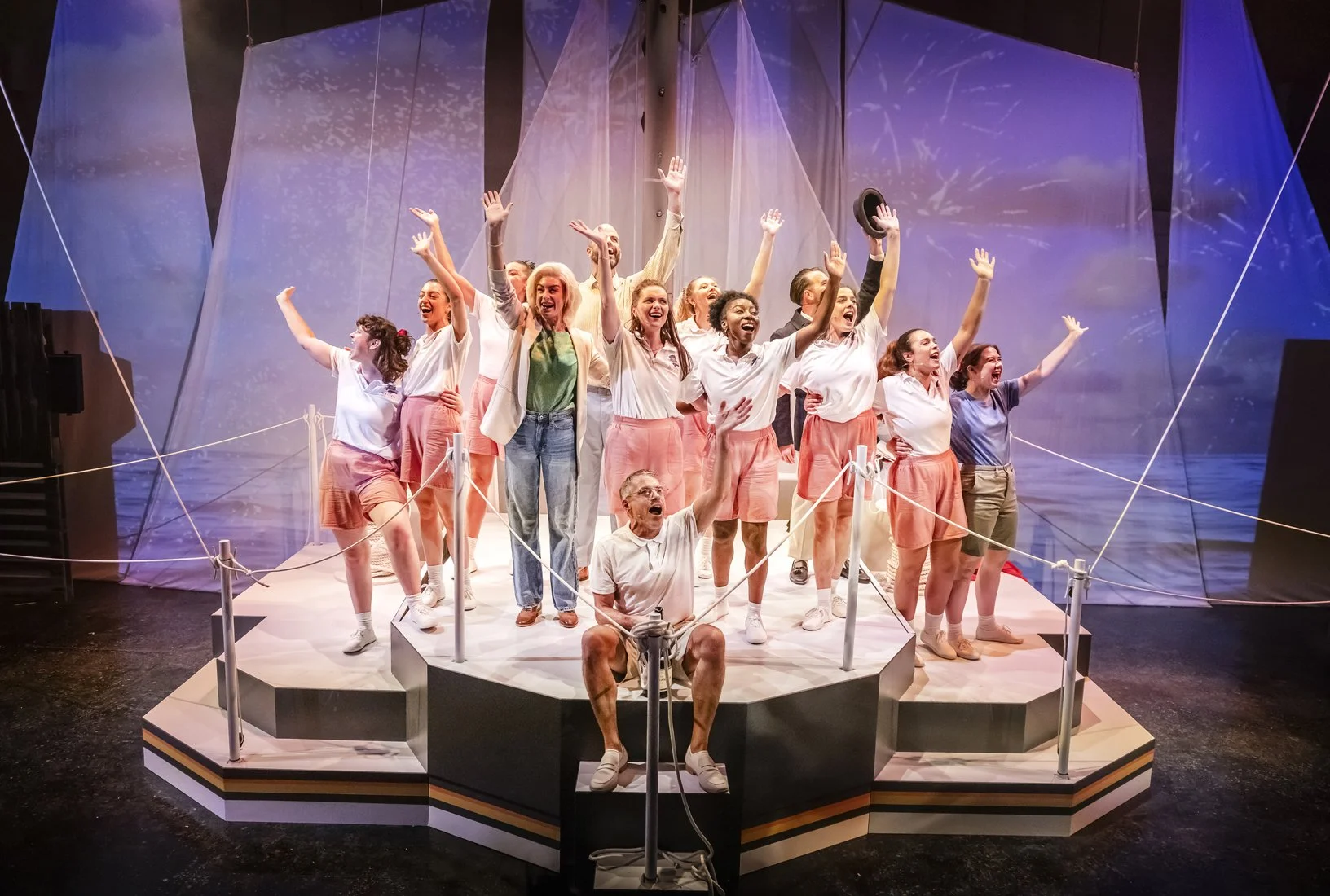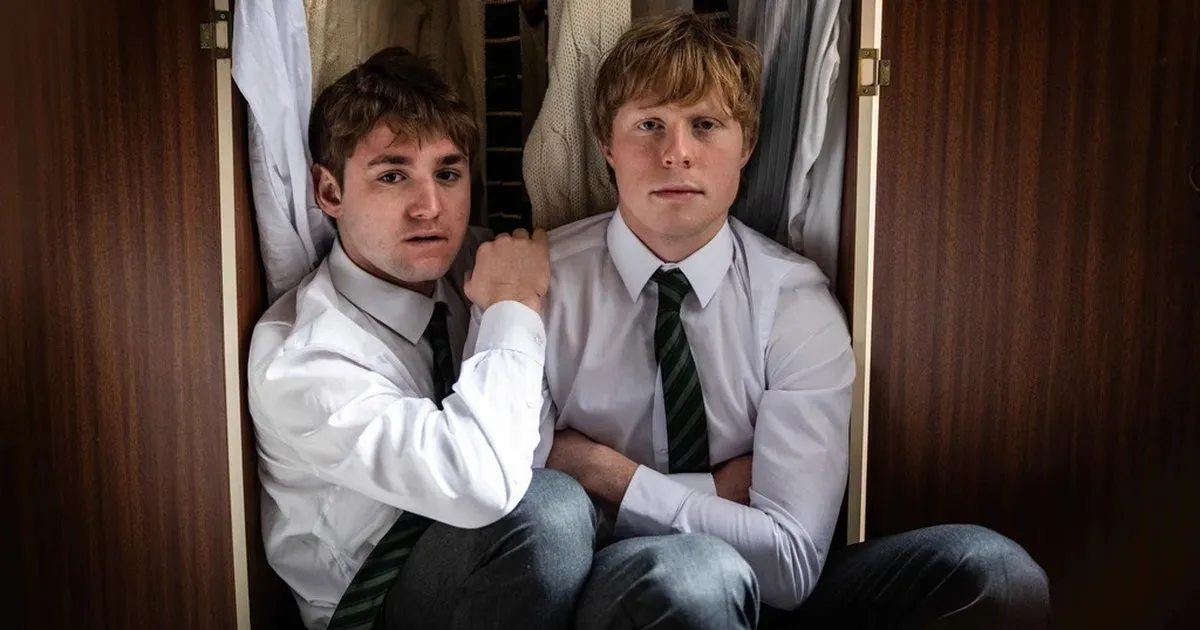Wolves On Road, Bush Theatre Review
Ery Nzaramba (Markos) and Alma Eno (Fevan) in 'Wolves On Road' at Bush Theatre. Photo by Helen Murray
Written by Danai for Theatre and Tonic
Disclaimer: Gifted tickets in exchange for an honest review
Wolves on Road begins with Manny (Kieran Taylor-Ford), a 21-year-old who dreams of making big money. Determined to avoid traditional labour, he constantly searches for ways to earn more. His friend, Abdul, played by Hassan Najib introduces him to the world of Bitcoin, convincing him that it's a lucrative opportunity. Before long, not only Manny but many people around him—his neighbours, his mother’s new partner, and even members of their local church—invest in a specific cryptocurrency app. They all share the same hope: to escape their paycheck-to-paycheck lives and achieve a stress-free existence.
As the play progresses, it becomes clear that this collective dream turns into a collective nightmare. Everyone loses their money, and the characters are forced to confront their choices, their trust in one another, and their visions of the future. Wolves on the Road is a timely production, blending themes of cryptocurrency with class struggles and the human side of London’s working class, particularly among people of colour.
The writing of Beru Tessema, especially when it comes to the dialogues is incredibly realistic, a testament to the playwright's ability to capture everyday conversations. The performances of the lead actors, Taylor-Ford and Najib, were exceptional, bringing a natural and authentic energy to their roles. The direction by Daniel Bayle stood out, along with Ali Hunter’s lighting design and the clever use of multimedia projections onstage. These elements helped immerse the audience in the tech-driven world of the characters, where smartphones and virtual interactions dominate their lives.
Despite its strong foundation though, the play often relied on stereotypical characters and relationships. While the plot and subject matter were innovative, the interactions lacked depth, making some moments and the overall outcome of the story predictable. This doesn’t diminish the play’s overall value, but it prevents it from becoming truly unforgettable.
The absence of more female presences was also noticeable. The mother’s character was the sole female role, which, while realistic for this story, left the narrative feeling unbalanced in its representation of London’s diverse working-class communities, mostly because as mentioned before the talented Alma Eno’s character was mostly highlighted as a motherly figure.
Hasan Najib’s portrayal of Abdul was a standout performance. To my surprise, this character brought way more laughter than I personally expected, even in moments when the truly dramatic dimension of this character was visible on stage, an element that was interesting to witness as it had a multileveled effect. Another unforgettable moment is the second act’s opening scene: a monologue delivered by Devlin (played by Tom Moutchi), presented as a live cryptocurrency speech about Devlin’s application, DGM. This scene blurred the lines between performance and reality, drawing the audience into the psychology of hope and ambition turning all of us into participants of the DMG event and speech. Moutchi’ s acting was so good that it really made a difference on how the audience experienced this and how we all felt closer to this collective hope of changing lives.
Wolves on the Road effectively explores the intersection of technology, trust, and money in today’s world. While it could have gone deeper into its characters and their relationships, it remains a thought-provoking and relevant production that with a deeper exploration of characters and relationships would stand out even more. With strong performances and inventive direction, it highlights both the dreams and the vulnerabilities of the working-class characters portrayed. What is more important though, is that Manny realises towards the end how the dream for a better life is what united all and how there is something to be explored there. His take is that bitcoins might still be the solution but there is a hint left about how there can be a way for people to understand what unites them and fight for it, how the culture of a common goal and a common problem needs to grow into something collective rather than an individualistic, money driven only mindset.
At Bush Theatre until 21 December 2024
★★★













